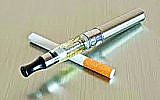What We Can Learn from Our Teens
Attending therapy, refining coping skills, maintaining open communication and staying involved in activities help reduce relapse.
If you have been keeping up with the community, you’d likely agree this year’s hot topic has been mental health. If you like to be ahead of the trend, the new focus will undoubtedly be teen mental health.
To help kick off this long-overdue conversation, I wanted to share some key points following an open discussion with two Jewish 20-somethings. These individuals are currently living what, by several measures, we will consider a satisfying, healthy life. A scenario well-earned, after a combined 20 years of struggling with various mental health and substance abuse issues.
Our topic of conversation centered around questions such as: “Do you feel your teen years had an impact on your difficulties?” and “What do you wish was done differently as a teenager?”
Get The AJT Newsletter by email and never miss our top stories Free Sign Up
The discussions were interesting and full of content, and the following insights are what we considered to be critical points to share with the community. But first, allow me to introduce today’s contestants.

The female contributor is a single, full-time student, in her mid-20s, has a robust, healthy social life and has chosen to remain sober from drugs and alcohol after dealing with addiction. She reports, “Alcohol was never my thing, but I don’t drink. Alcohol is not the feeling my brain wants,” referring to historical preference for opioids. “If drinking increases my chances [of relapsing on opioids/heroin] by 1 percent … not worth it.”
She grew up in the Atlanta suburbs, maintained “yeah, pretty good grades,” was accepted to college out of high school and reported, “the worst of it was in college, I had to take some time off [for treatment], but I’m a much better student now.”
Our male counterpart is later in his 20s, has a full-time job, an active social life, committed girlfriend and participates in recreational sports. He holds a college degree and insists I share he maintains a close relationship within his tight-knit family and is the favorite grandchild, even though “it is not a competition.” He acknowledges having used cannabis and alcohol “socially,” but “never had a problem” with them, independent of having worsened his depression and anxiety. (Quick note: cannabis and alcohol frequently exacerbate psychiatric symptoms and can have negative interactions with medications.)
He had required inpatient treatment for his mental health symptoms as they reached a crisis level where he had suicidal ideation and a history of panic attacks.
Upon discussing whether their teenage years had an impact on their histories, both answers were clear yeses. Self-esteem, self-image, a dependence on validation from others, cannabis use, anxiety and a lack of healthy coping skills were mutually-agreed-upon culprits. In addition, body image, bullying, traumatic experiences, grief and feeling “unbelievable pressure and expectations” from school, parents and social circles were reported contributing factors.
We moved on to discuss what they believed would have been helpful in reducing the severity of their problems and if anything could have been done to avoid the reported worst parts, specifically the opioid, later heroin, addiction and the crisis resulting in hospitalization. The initial response from both parties was a silent pensiveness, a smile and a little head-shaking. While both experiences were varied in home life, socio-economic status, major life events (such as trauma, bullying, divorce, etc.), substance abuse, social experiences and a few other key points, the main take-aways, which we would like to share with the community are:
• Having open and honest communication with adults. Family boundaries and openness were a common thread. Having a therapist, mentor or a third party adult was the unanimous winner. One participant stated, “If you asked me then, I knew everything. I was an expert on life at 15. But I had no clue. I was a little kid.” Having help, guidance, support and “some way to just love myself and care about
… or like … understand what real consequences were.” Additionally, firm adult guidance would have been useful to …
• Become or remain involved in activities. Especially sports, temple youth group or clubs. One participant reported, “When I think about me at my happiest then, it was when I was busy and involved” in organized activities. “I remember when I dropped out of [youth group], it’s like ‘Why are you listening to me? Just make me go.’” Structure, connectedness to peers and achievement are all essential elements to teen wellness.
• Have an established relationship with a therapist. Not that every teen needs one, but it can be difficult to tell when certain behaviors are symptoms of a mental health condition or just “being a typical teenager;” only a licensed mental health professional is qualified to make that call. Also, having a pre-existing relationship with a therapist can reduce the barrier to getting help in the event it is needed.
• Coping skills. Healthy coping skills are easier to engage when used regularly. Everyone experiences stressors, and everyone will, for better or worse, find a release. Not all methods of relaxation are created equal.

• While there are enough topics to fill a bookshelf on this subject, the most interesting insight (and the scientific literature agrees) is that teens who are engaged and feel connected to one another do better with the ups and downs of life. They learn and practice healthy coping skills, maintain structure and thus are better prepared to handle life’s challenges. Connection and life skills are game changers.
Daniel Epstein is a licensed professional counselor, licensed mental health counselor and licensed psychotherapist. He is also program director of The Berman Center, an intensive outpatient program for mental health and substance abuse. The Berman Center now has an adolescent program and teen groups.





comments